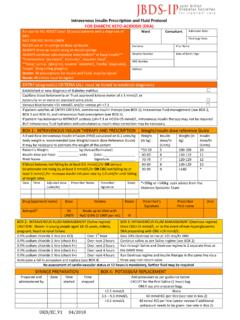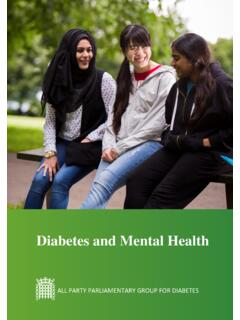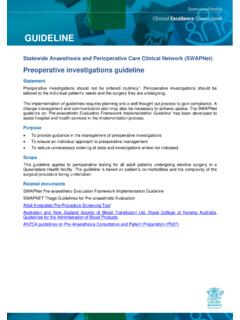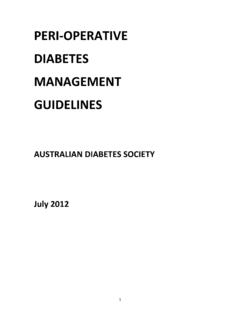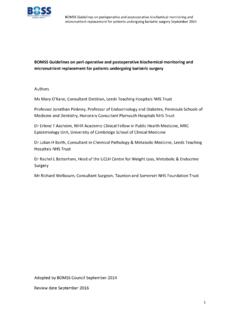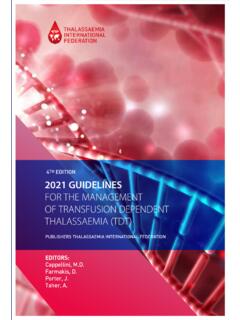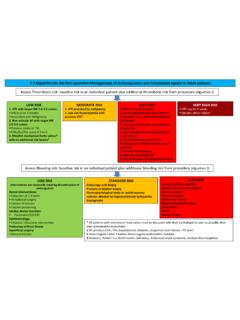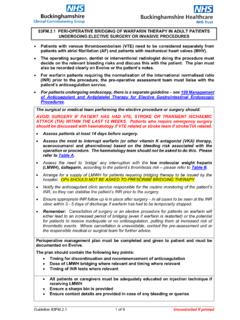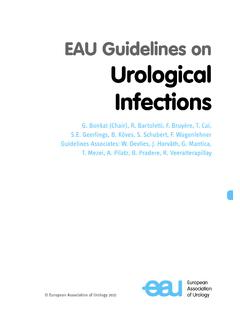Transcription of Management of adults with diabetes undergoing surgery …
1 Management of adults with diabetesundergoing surgery and electiveprocedures: Improving standardsSummaryRevised March 2016 Lead authorshipDr Ketan Dhatariya Consultant in diabetes , Norfolk and Norwich University Hospitals NHS Foundation TrustDr Nicholas Levy Consultant in Anaesthesia, West Suffolk NHS Foundation TrustDr Daniel Flanagan Consultant in diabetes , Plymouth Hospitals NHS TrustLouise Hilton Senior diabetes Nurse, Bolton PCTDr Anne Kilvert Consultant in diabetes , Northampton General Hospital NHS TrustDr Gerry Rayman Consultant in diabetes , The Ipswich Hospital NHS TrustDr Bev Watson Consultant in Anaesthesia, The Queen Elizabeth Hospital Kings Lynn NHS Foundation TrustContributorsProfessor David Cousins Head of Patient Safety for Medication and Medical Devices, (formerly National Patient SafetyAgency (NPSA) In June 2012, the key functions and expertise for patient safety developed by NPSA transferred to the NHSC ommissioning Board Special Health Authority)
2 Carol Jairam diabetes Specialist Nurse, Charing Cross Hospital, Imperial College Healthcare NHS TrustStephanie Leonard Sister in the preadmission unit, Bolton NHS Foundation TrustDr Karen Leyden Consultant in Anaesthesia, Northampton General Hospital NHS TrustDr Anna Lipp Consultant in Anaesthesia, Norfolk & Norwich University Hospitals NHS Foundation TrustProfessor Dileep Lobo Professor of Gastrointestinal surgery , Nottingham University Hospitals NHS TrustDr Nigel Penfold, Consultant in Anaesthesia, Council Member of Royal College of Anaesthetists, Dr Maggie Sinclair-Hammersley Consultant in diabetes , John Radcliffe Hospital, Oxford University Hospitals NHS TrustSupporting organisationsDiabetes UK: Tracy Kelly, Head of CareJoint British diabetes Societies (JBDS) for Inpatient Care, Chair: Professor Mike Sampson (Norwich) diabetes Inpatient Specialist Nurse (DISN) UK Group, Chair: Esther Walden (Norwich)Association of British Clinical Diabetologists (ABCD), Chair.
3 Dr Rob Gregory (Leicester)JBDS IP GroupDr Belinda Allan, Hull and East Yorkshire Hospital NHS TrustDr Hamish Courtney, Belfast Health and Social Care Trust, Northern IrelandDr Ketan Dhatariya, Norfolk and Norwich University Hospitals NHS Foundation TrustDr Daniel Flanagan, Plymouth Hospitals NHS Trust Dr Stella George, East and North Hertfordshire NHS TrustDr Rob Gregory, Chair, Association British Clinical DiabetologistsJune James, University Hospitals of Leicester NHS TrustTracy Kelly, diabetes UKDr Omar Mustafa, King s College Hospital NHS Foundation TrustDr Colin Perry, NHS Greater Glasgow and ClydeDr Gerry Rayman, The Ipswich Hospitals NHS TrustDr Stuart Ritchie.
4 NHS LothianDr Aled Roberts, Cardiff and Vale University NHS Health BoardProfessor Mike Sampson (Norwich), Chair, Joint British diabetes Societies (JBDS) for Inpatient Care Dr Maggie Sinclair-Hammersley, Oxford University Hospitals NHS TrustDebbie Stanisstreet, East and North Hertfordshire NHS TrustProfessor Jonathan Valabhji, National Clinical Director for Obesity and DiabetesEsther Walden, Norfolk and Norwich University Hospital NHS Foundation TrustDr Peter Winocour, East and North Hertfordshire NHS TrustWith special thanks to Christine Jones (Norwich) for her administrative work and help with these guidelines and with JBDS IPAcknowledgementRichard Grimsdell for the journey logo designThis is an update to the First Edition, published in am delighted to be asked to support this important document.
5 As we are all aware, the number ofpeople with diabetes continues to increase. With this increase in the general population, the numbers ofpeople with diabetes requiring surgery is also on the rise. Since the last edition of this guideline waspublished there have been more data to show that poor glucose control in the peri- operative period isassociated with an increased risk of all of the complications of surgery . Additionally, new data has shownthat having diabetes remains a reason why many patients are inappropriately denied day case authors of this updated edition are to be congratulated on their efforts. The initial version theyproduced was well received and subsequently united all the professionals involved in the Management ofpatients with diabetes undergoing surgical procedures.
6 This edition has several updates; taking intoaccount new published evidence; new drugs; and incorporates feedback from the first edition. It is hopedthat this second edition will allow the guidelines to remain relevant and moreover, continue to promoteimprovements in the outcomes of the surgical patient with diabetes undergoing Jonathan ValabhjiNational Clinical Director for Obesity and diabetes , NHS EnglandForeword4 Comprehensive care pathway for peri- operative Management of diabetesThese guidelines cover all stages of the patient pathway from primary care referral to surgical outpatients,pre- operative assessment, hospital admission, surgery , post- operative care and discharge.
7 The processshould be seamless, with advance planning guidelines are primarily intended for the Management of patients with diabetes referred for electivesurgery. However, most of the recommendations can be applied to the patient presenting for emergencysurgery with the proviso that many such patients are high risk and are likely to require an intravenousinsulin infusion and level 1 care (acute ward with input from critical care team) as a carereferralPre-operativeassessmentPost- operativecareSurgical outpatientsHospitaladmissionTheatreand recoveryDischarge5 Main recommendations6 Organisation and planning of care 6 diabetes specialists6 Perioperative use of IV insulin6 Perioperative blood glucose monitoring7 Primary care 8 Surgical outpatients9 Pre- operative assessment 10 Hospital admission12 Theatre and recovery14 Post- operative care 16 Safe use of insulin17 Discharge 19 Audit standards20 Appendix 1:Guideline for peri- operative adjustment of insulin 23 Appendix 2:Guideline for peri- operative adjustment of non-insulin medication 25 Appendix 3.
8 guidelines for suitability of patients with diabetes for day case surgery 27 Appendix 4:Guideline for peri- operative monitoring of diabetes and Management of 28hyperglycaemia and hypoglycaemia in patients undergoing surgery with a short starvation period Appendix 5:Guideline for the use of a variable rate intravenous insulin infusion (VRIII) 30 Appendix 6:Advantages and disadvantages of intravenous solutions32 Appendix 7:Transferring from a VRIII to subcutaneous insulin or oral treatment35 Appendix 8:Examples of patient information leaflets for patients undergoing surgery or 37procedures requiring a period of starvation Appendix 9:Example of instructions for non- operative procedures requiring a period of 41starvationAppendix 10:Sick Day Rules for People with Diabetes42 Appendix 11:Discharge letter: Advice for patients with diabetes who are discharged 43following a surgical procedureAppendix 12:GP letter with recommendations for referral of patients for surgery44 Contents6 Organisation and planning of care1.
9 All institutions should have a clinical lead for theperi- operative Management of patients withdiabetes whose responsibility it is to ensure thatthe institution has up to date guidelines that areimplemented. The clinical lead should also ensurethat all patients with diabetes are optimallymanaged during their surgical Careful planning, taking into account the specificneeds of the patient with diabetes , is required atall stages of the patient pathway from GP referralto post- operative discharge. 3. The patient should be involved in planning for allstages. 4. Hospitals should have a system in place to identifyall patients with diabetes on the patientadministration system to highlight the need toprioritise them on the operating All letters of referral from primary care to a surgicalspeciality should identify patients with High-risk patients should be identified in surgicaloutpatients or at pre- operative assessment andplans should be put in place to manage the Early pre- operative assessment should be arrangedto determine peri- operative diabetes managementstrategy and to identify and optimise other Day of surgery admission should be the default position.
10 diabetes specific pre-admission should Minimise starvation time by prioritising on the Surgical and anaesthetic principles of theEnhanced Recovery Partnership Programmeshould be implemented to promote earliermobilisation with resumption of normal diet andreturn to usual diabetes Multi-modal analgesia should be combined withappropriate anti-emetics to enable an early returnto normal diet and usual diabetes The patient should resume diabetes self- Management as soon as possible A policy which includes plans for diabetesmanagement should be in place for safedischarge. 14. Outcomes should be audited specialists15. Clear guidelines should indicate when thediabetes specialist team should become All hospitals should implement a DiabetesInpatient Specialist Nurse (DISN) service tosupport the elective use of intravenousinsulin17.

